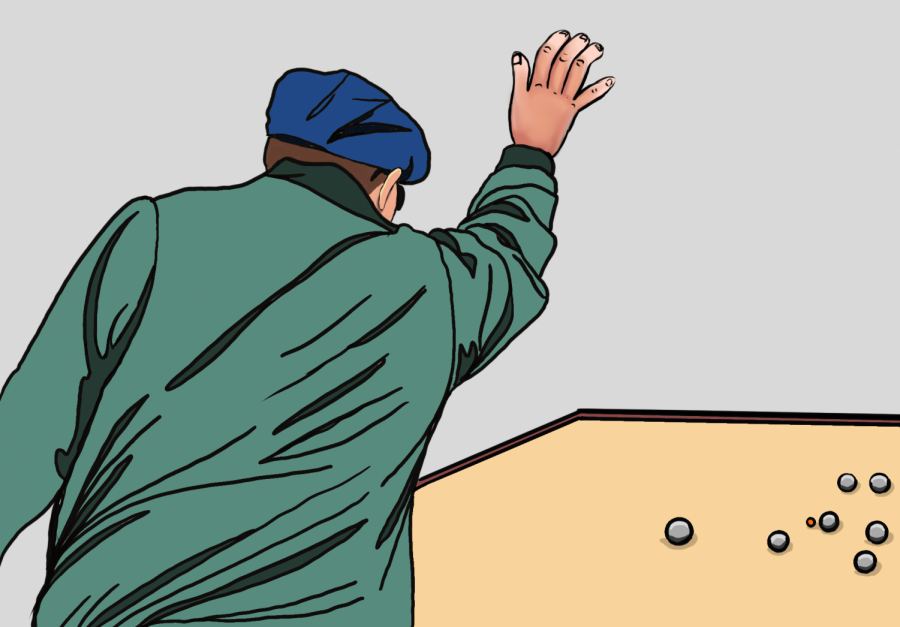A severe head injury, especially the kind with the potential to recur, is a student’s and athlete’s worst nightmare. Although they attract the most controversy at the professional and D-I levels of athletics, concussions remain a major issue at Whitman as well.
Concussions are suffered in varsity sports, everyday life and everywhere in between, but some students complain that the college’s resources are only available to varsity athletes. Concussion protocols continue to evolve both nationally and at Whitman, while many athletes already suffer the long-term effects of repeated head injuries.
Whitman’s concussion protocol was developed in accordance with NCAA regulations. It requires that athletes who suffer symptoms consistent with a mild head injury be removed from practice or competition for the day and then reevaluated periodically until the symptoms are gone. To determine this, Whitman uses two tests: the GSC (Graded Symptom Checklist) and the SAC (Standardized Assessment of Concussion), which rely on self-reported data and objective criteria of cognitive function, respectively. Readiness to play is determined by a combination of the two tests.
Whitman Athletic Director Dean Snider is pleased with Whitman’s evaluation of head injuries compared to other schools.
“I think that we’re dealing with it very, very well and that we’re way ahead of the curve,” said Snider.
Snider emphasized that because Whitman’s athletics serve to further the school’s educational mission rather than serving the college’s financial interests. There are no “pressure points” that would allow for irresponsible handling of concussions.
“When the program is entertainment-based and revenue-based, those types of voices tend to have the most say, and the student in those types of settings often is not cared for,” he said.
Sam Perkins ‘17, a former varsity soccer player who quit due to a string of concussions over several years, agrees that Whitman handles concussions in a responsible way.
“I think the athletic department, the trainers there, talk to kids a lot about it. I think they handle it really well,” he said.
Perkins has played soccer since youth and had suffered nine concussions by the time he got to high school. He quit after suffering a 10th while training this summer. Although intervention for Perkins came from home rather than from the school, he says that was because he did not properly inform the school about his previous concussions.
“I don’t think I was being transparent enough with my history,” he said.
However, students are not universally happy with the treatment. One common criticism is that the school neglects the issue of head injuries that occur in non-varsity athletics and in everyday life. Delio Fernandez ‘17, a student who has suffered many concussions in athletic and non-athletic settings, says Whitman does not promote the resources that are available except to varsity athletes.
“I was just not aware of the resources, and I think that’s something that Whitman should do a better job of … I wasn’t an athlete, and I think that Whitman ignores the fact that non-athletes can get concussions and tailors the response for athletes as opposed to every student, which is exclusive,” said Fernandez. He added that Whitman has been the least supportive of the schools he has attended.
This sentiment was shared by Perkins.
“I think the resources are only available to varsity athletes and some of the club sports that are more successful,” said Perkins.
John Eckel, Whitman’s head athletics trainer, acknowledges that the attention of the athletic staff has in the past only been offered to varsity athletes, but he notes that there have been recent changes. In particular, Whitman has made imPACT testing, a baseline (non-concussed) test of cognitive function, freely available to all students. Eckel, who administers the test, says the response hasn’t been what he had hoped for, but that more sessions will likely be held in coming months.
Eckel says that imPACT test results are made available to the Welty Student Health Center, which can provide both treatment of head injuries and academic accommodation in classes.
“Ideally we would like to get the entire student body tested. It doesn’t take long,” said Eckel.
Snider and Eckel both noted that the handling of concussions has changed radically in recent decades, as awareness of the dangers of head injuries has increased.
“We’re definitely treating them better now than when I first started 30 years ago,” said Eckel, who also noted that the concussion policy is re-evaluated every year.
There is widespread agreement that head injuries are a serious issue. Snider and Eckel are quick to highlight the severity of concussions and their consequences, and Perkins says he has been hampered by lingering effects.
“I think it’s changed my moods, there’s a lot more mood fluctuations. I think there’s definitely long-term damage, like dead spots in my brain,” said Perkins.
As controversies continue to develop nationally, Whitman students, athletes and administration also continue to struggle with the issue of concussions.










